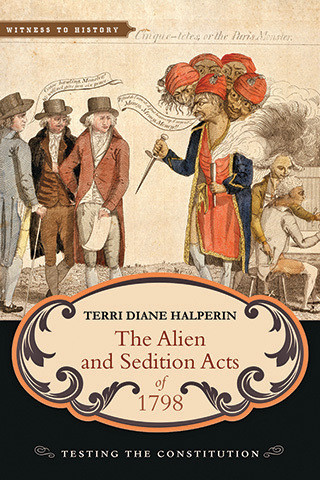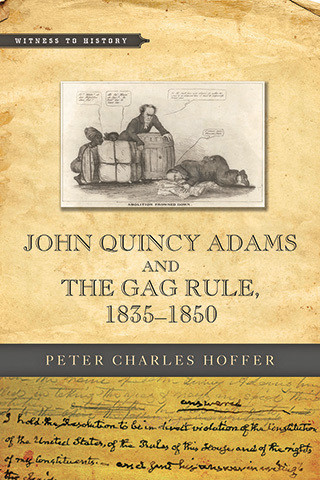
Reviews
In The Webster-Hayne Debate, Christopher Childers examines the context of the debate between Daniel Webster of Massachusetts and his Senate colleague Robert S. Hayne of South Carolina in January 1830... Readers will finish the book with a clear idea of the reason Webster's "Reply" became so influential in its own day. They will also better understand the debate's political context.
Christopher Childers's contribution to Johns Hopkins University Press's highly regarded Witness to History series reminds us that the [Webster-Hayne] debate remains a subject well worth considering, both for its oratorical power and, perhaps even more importantly, for what it reveals about the complex and intricately nuanced nature of the nation's Jacksonian political culture. The chief strength of Childers's work is its ability to provide readers with a sophisticated overview of the shifting political landscape that inspired this highly charged and symbolically rich exchange.
The Webster-Hayne Debate: Defining Nationhood in the Early American Republic is an excellent fit for the undergraduate classroom and will surely spark conversation about the relationship between the states and the Union... this work serves as an introduction to this pivotal moment and to the politics of early antebellum America.
A well-argued and original book that carefully examines the famous Webster-Hayne debate. Childers makes an important historical argument. This will be a central book for years to come in the historiography of the early republic and the coming of the Civil War.
Even more than a clear-eyed analysis of the spellbinding Senate debate over nullification and disunion, this book is a beautiful synthesis of the forces and personalities that commanded early American politics. Christopher Childers adroitly examines issues of western land sales, localism and nationalism, and the very character of the two-party system, marking a key moment in US history when political insiders trembled and North and South faced their respective demons.
With analytical rigor and narrative skill, Christopher Childers takes us beyond the famous speeches delivered by Webster and Hayne to uncover the complex interplay of sectional interests and constitutional values during the crisis over nullification. This is a lucid treatment of an important topic.
By setting the full context for the Webster-Hayne debate, Childers captures the complex and dynamic range of issues that roiled American politics in the 1820s, which was far from a quiet era. Building on this foundation to retell this clash with strong narrative detail, he conveys its full drama as well as its stakes.
Christopher Childers's marvelous study clarifies the essence of the Webster-Hayne Debate and its importance in the sectional conflict.
Book Details
Preface
Acknowledgments
Prologue. We the States or We the People?
1. New England’s March toward Nationalism
2. The South’s March toward Sectionalism
3. The West Asserts Its Power
4. The Great Debate
5
Preface
Acknowledgments
Prologue. We the States or We the People?
1. New England’s March toward Nationalism
2. The South’s March toward Sectionalism
3. The West Asserts Its Power
4. The Great Debate
5. Nullification and Nationhood
Epilogue. The Webster-Hayne Debate in Historical Memory
Notes
Essay on Sources
Index





